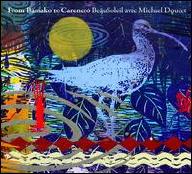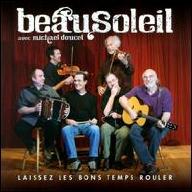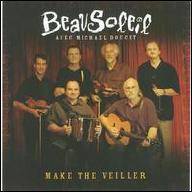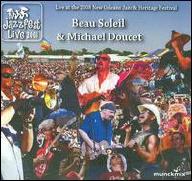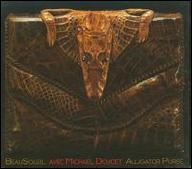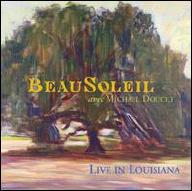Doucet was born and raised in Cajun country surrounded by the old French songs that comprise the basis of the music. But from the time of his birth to his adulthood in the 1960s, Cajun culture began to disappear. Young Doucet, thinking Cajun music antiquated and passé, began his musical career playing rock with New Orleans influence. He began getting into folk-rock towards the end of the '60s and even tried singing a few of his numbers in French. It was a song from the British folk group Fairport Convention and their song, "Cajun Woman," that re-sparked his interest in his native music. He went to France and England in 1973 just before he was to enter grad school in the U.S. He ended up staying many years studying with Scottish fiddle great Barry Dransfield, who eventually introduced him to his idol Richard Thompson. Later, Doucet credited Thompson for influencing his own compositions. The young fiddler's stay in France also had a profound influence. There he saw that the roots of Cajun were still very much alive. The old songs were still sung, and he heard their centuries-old influence in newer folk songs. It made him realize how modern Cajun music was in comparison. In the mid-'70s, Doucet joined Coteau, an improvisational folk-music based French group that was known as the Cajun equivalent to the Grateful Dead. After a time with them, he returned to the U.S., determined to immerse himself in Cajun musical history. A grant from the National Endowment for the Arts supported him as he located the nearly forgotten early composers and performers of Cajun music.
Armed with many traditional Cajun songs, Doucet formed BeauSoleil with some of the finest Cajun musicians, Dennis McGee, Dewey and Will Balfa, Varise Connor, Canray Fontenot, and Bessyl Duhon. Their band name literally means "good sun" and is a reference to a fertile region in Nova Scotia. In the 17th century, French speaking Acadians lived in the Canadian province until conflicts with the French and British forced them to migrate down to Louisiana where they became called Cajuns. BeauSoleil cut its first record in 1976 and released it only in France. They made their American debut the following year with The Spirit of Cajun Music. It was an eclectic work illustrating the many musical styles from which Cajun music is derived. In 1988, Doucet received the first annual Clifton Chenier Award as the finest musician in French-speaking Louisiana. Since 1985, the band has been nominated for (and won) numerous Grammys. They have played on movie soundtracks such as The Big Easy, Passion Fish, and Belizaire the Cajun. They have played at jazz and folk festivals around the world and have also appeared on numerous television shows ranging from CNN's Showbiz Today to Austin City Limits to Late Night with Conan O'Brien. BeauSoleil also performs regularly on public radio, most notably on Garrison Keillor's Prairie Home Companion. Keillor has hailed them as the "best Cajun band in the world." They have performed with Mary Chapin Carpenter, and opened for the Grateful Dead. After taking a short studio break in 2004, the band celebrated its 30-year tenure with 2009's Alligator Purse, an all-new set of tunes that was typically eclectic and absolutely danceable. A live CD/DVD set of an intimate performance by the band from 2007, Make the Veiller, was issued in 2009. Another studio set, From Bamako to Carencro, arrived in 2013, but BeauSoleil spent most of the 2010s playing regularly as a live band. ~ Sandra Brennan, Rovi



